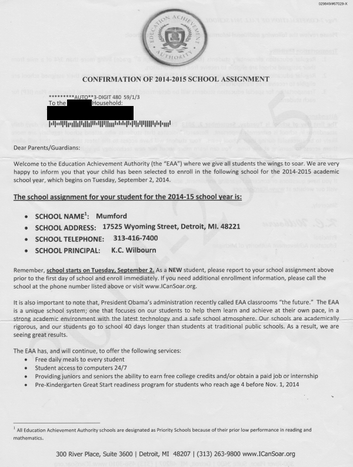|
On June 6th, 2020 members of the Ontario Secondary School Teachers’ Federation (OSSTF) launched a petition calling on their Federation to dissolve partnership with researchED, a divisive and populist organization hostile toward progressive education. This hostility marginalizes teachers who centre equity in their pedagogy and are anti-oppressive and anti-racist in practice.
Almost two weeks (and 600 signatures) after the launch of the petition the partnership was severed and a refund issued to OSSTF. A statement by researchED distanced itself from the substance of the petition, while continuing to recruit Ontario teachers. The statement did not take accountability for members’ concerns. We are writing our history into institutional memory to raise awareness of researchED ideology and influence.
1 Comment
The Critical Geographies of Education Specialty Group (CGE-SG) stands in solidarity with our Black colleagues and specialty group members and with the uprising against police brutality and anti-Black racism that has most recently claimed the lives of George Floyd, Ahmaud Arbery, and Breonna Taylor in the United States to Regis Korchinski-Paquet and D'Andre Campbell in Canada. The movement for Black liberation is global and calls all of us to action. We must resist anti-Black racism at all levels where we find ourselves to have influence and power.
CGE-SG was established to promote, organize, and advance critical geographic explorations of education and schooling; to support the scholarly growth of critical geographers of education; and to contribute to social movements related to struggles over schooling. These struggles emerge from a national ideological project that depends on policing to maintain and reproduce the system of white supremacy. Our work examines its mechanisms: from settler colonial logics, market-based neoliberal governance, and education redlining, to the militarization of schools and everyday policing of Black children that comprise the school to prison pipeline. Our work also engages with the myriad ways that individuals and communities create space for Black futures. We are grateful for the leadership of the Black Geographies specialty group in pushing the discipline forward and echo and respond to appeals articulated by other specialty groups, particularly the Specialty Groups for Indigenous Peoples, Queer and Trans Geographies, Latinx Geographies, and Caribbean Geography; we join those calling for the amplification of Black voices and the support of Black life, activism, and labor, in our discipline, in our communities, and in the streets. Solidarity is a responsibility. The CGE-SG is committed to meeting this responsibility by earning relationships with grassroots movements fighting for Black liberation and justice; advocating for police abolition and anti-racist education; and working through our professional and personal lives to combat anti-Black racism in all its forms. Black lives matter. Signed, CGE-SG Officers
Once you remove pesky costs such as (unionized) teachers and buildings, the real profit extraction can begin.
 Image by 3D Animation Production Company from Pixabay
|



 RSS Feed
RSS Feed